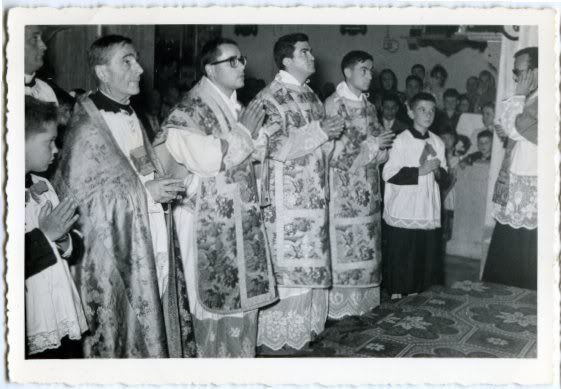Courtesy of
The Western ConfucianFrom
The Korea Herald:
by Garrison Keillor
Back in the day, we fundamentalists didn't mess with angels, sensing that Catholics owned the angel franchise, part of their dim smoky world of bead-rattling and hocus-pocus and lugubrious statuary, so instead we focused on the Holy Spirit who dwelt in all of us true believers and told us what to do and what to say, which is convenient for people with plenty of self-confidence. You read some Scripture and work up a sweat over it and stand up in the sunlit sanctuary, no dinging or chanting, no costumes or choreography, and you open your mouth and out comes Truth, such as the doctrine of Separation from the World, which was appealing to those of us with no social skills -- if people didn't like us, it was proof of our righteousness.
The idea that I was right and most other people were wrong stuck with me through my cocksure youth and some of middle age, but then comes the perilous passage of life when a man lies awake thinking about the prostate and the mitral valve, and your interest in Truth fades a little compared to your interest in winged beings who might come and rescue people in serious trouble. Nowadays I think more about angels. And sometimes I slip into Catholic churches to sit and commune with any resident angels and to light a few candles, especially for young people in trouble.
The sorrows of old age are tedious; it's the disasters of the young that tear at your heart. The son of an old friend has a bad accident and damages his spinal cord and now is in rehab, trying to put as much of his life together as he can. The daughter of an old friend is shot in broad daylight in the streets of Johannesburg, carrying her infant. A young man's little boy sprouts a horrible brain tumor and the father suspends his studies for several years to care for him, meanwhile his wife leaves him. These are grievous situations for which I sit in a cold empty church and look at St. Michael and ask him to intervene.
And then there is the grief that old righteous people inflict on the young, such as our public schools. I'm looking at U.S. Department of Education statistics on reading achievement and see that here in Minnesota -- proud, progressive Minnesota - on a 500-point test (average score: 225), 27 percent of fourth-graders score below basic proficiency, and black and Hispanic kids score 30-some points lower than white on average, and the 30 percent of public schoolkids who come from households in poverty (who qualify for reduced-price school lunches) score 27 points lower than those who don't come from poverty.
Reading is the key to everything. Teaching children to read is a fundamental moral obligation of the society. That 27 percent are at serious risk of crippling illiteracy is an outrageous scandal.
This is a bleak picture for an old Democrat. Face it, the schools are not run by Republican oligarchs in top hats and spats but by perfectly nice, caring, sharing people, with a smattering of yoga/raga/tofu/mojo/mantra folks like my old confreres. Nice people are failing these kids, but when they are called on it, they get very huffy. When the grand poobah Ph.D.s of education stand up and blow, they speak with great confidence about theories of teaching, and considering the test results, the bums ought to be thrown out.
There is much evidence that teaching phonics really works, especially with kids with learning disabilities, a growing constituency. But because phonics is associated with behaviorism and with conservatives, and because the Current Occupant has spoken on the subject, my fellow liberals are opposed.
Liberal dogma says that each child is inherently gifted and will read if only he is read to. This was true of my grandson; it is demonstrably not true of many kids, including my sandy-haired, gap-toothed daughter. The No Child Left Behind initiative has plenty of flaws, but the Democrats who are trashing it should take another look at the Reading First program. It is morally disgusting if Democrats throw out Republican programs that are good for children. Life is not a scrimmage. Grown-ups who stick with dogma even though it condemns children to second-class lives should be put on buses and sent to North Dakota to hoe wheat for a year.
St. Michael, I beg you to send angels to watch over fourth-graders who are struggling to read, because the righteous among us are not doing the job.
Garrison Keillor's "A Prairie Home Companion" can be heard Saturday nights on public radio stations across the United States. -- Ed.


